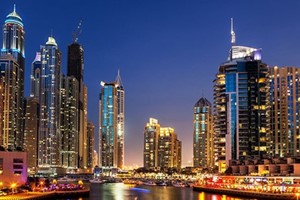As South Africa faces escalating water insecurity, the country’s bottled water sector—led by the South African National Bottled Water Association (SANBWA)—is distinguishing itself through responsible water management, sustainability initiatives, and advanced technologies. SANBWA and its members, which include major bottled water brands operating across the country, are demonstrating that commercial success can coexist with environmental stewardship.
According to SANBWA CEO Charlotte Metcalf, the association’s members are united by a shared commitment to minimising water waste at every stage of production. “All our members comply with the National Water Act,” she says, noting that legal abstraction of water is only permitted once a valid water-use licence or general authorisation is secured from the Department of Water and Sanitation (DWS).
Beyond legal compliance, SANBWA enforces one of the most rigorous water-use frameworks in South Africa’s food and beverage sector. The association has established a maximum water-use ratio of 1.6 litres for every litre of bottled water produced. This figure includes all water used during cleaning, processing, and bottling—far below the 2.5 to 4 litres used per litre of product in many other food and beverage operations.
“This figure isn’t just a target, it’s a ceiling,” Metcalf stresses. “Our members are constantly striving to improve.” To achieve these goals, SANBWA members employ high-precision filling systems that significantly reduce water overfill and product rejection rates. Since rejected bottles often contain water that cannot be reused, this focus on precision directly reduces waste.
Many plants have also implemented closed-loop systems that recycle rinse water for secondary uses like equipment cleaning and landscaping. Alternative sterilisation methods such as ultraviolet (UV) and ozone treatments are replacing traditional water-heavy techniques, achieving hygiene standards with far less water.
Technology, however, is only part of the equation. Routine maintenance and real-time water flow monitoring systems help detect leaks or inefficiencies early—especially critical in older facilities where minor leaks can persist unnoticed for months. These systems ensure operations remain efficient and environmentally conscious.
Water use and quality are verified annually through SANBWA’s independent audits, which confirm whether members are staying within their licensed abstraction volumes and adhering to water-saving protocols. In addition, some members contribute to broader community needs by donating off-spec or surplus bottled water for non-potable uses—such as during municipal service disruptions or for road construction.
Several facilities are also exploring circular economy practices, including rainwater harvesting for irrigation and greywater reuse systems. These efforts not only reduce their environmental footprint but also support national water conservation objectives.
Despite frequent criticism that bottled water commodifies a scarce resource, SANBWA insists that its members set an example of responsible use. “We want to show that the private sector can play a meaningful role in addressing South Africa’s water challenges,” says Metcalf. “Through innovation, accountability and proactive stewardship, we are proving that sustainability and business performance can go hand in hand.”
By Devina Haripersad













